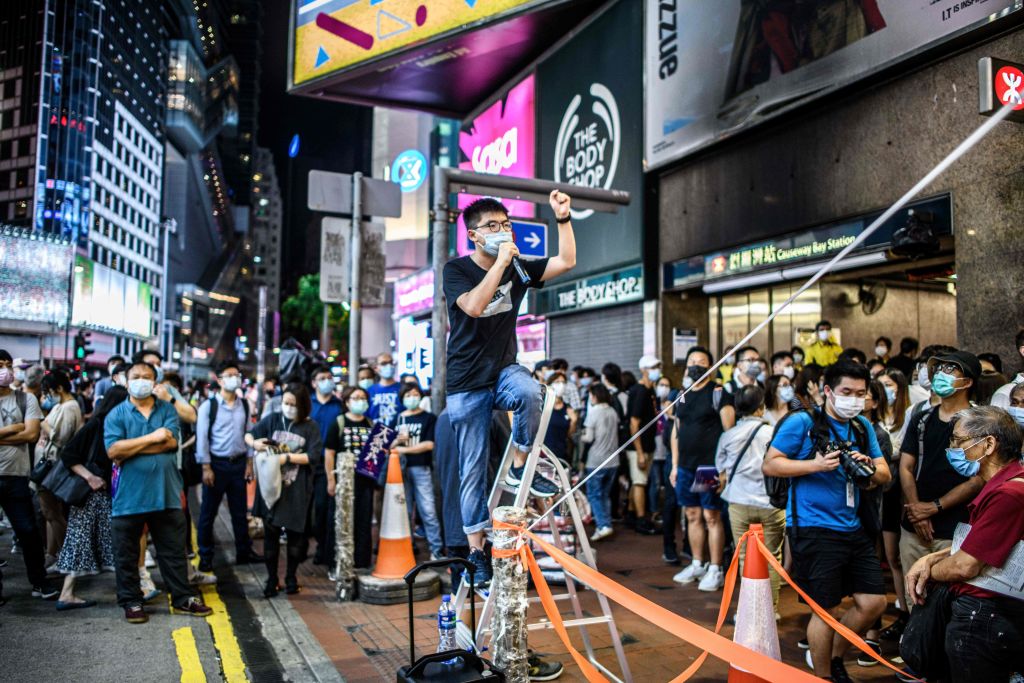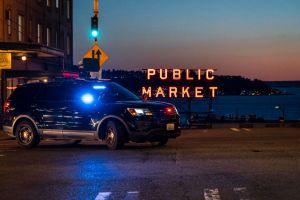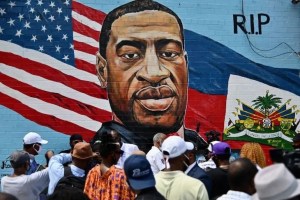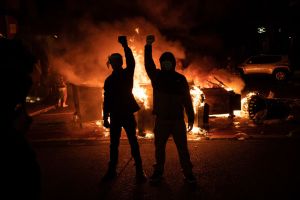As soon as the unrest began in Minneapolis, the inevitable comparisons with Hong Kong began.
We saw throngs of masked demonstrators take to the streets holding placards and chanting slogans while police in riot gear discharged rubber bullets, pepper spray and tear gas. We saw skirmishes in which protesters were pinned to the ground with excessive force. We saw smoldering barricades and burning police vehicles. But that’s where the superficial similarities between the two protest movements end.
Hong Kong’s protests began as a revolt against the controversial extradition bill (which would have allowed extraditions to mainland China). It built upon past pro-democracy movements and morphed into an existential battle against the Chinese Communist party. Its stated objective was to preserve the autonomy and civil liberties guaranteed under ‘One Country Two Systems’ that China has been undermining.
The city of Hong Kong never saw the scale of destruction or the deaths that America has just witnessed. Looting was a rare occurrence during the Hong Kong marches. A riotous fringe that adopted more militant tactics did target and loot Chinese-owned businesses such as Xiaomi (the Chinese telecom company) but by and large, looting was minimal. Over almost a year of continued protesting, the total number of fatal casualties for the Hong Kong protests stands at two, in sharp contrast to the already more than 16 deaths recorded over just two days of rioting across US cities.
Unlike in Hong Kong, the American protesters’ demands are more amorphous, ranging from defunding police departments to paying $14 trillion in reparations for every descendant of African American slaves as ‘atonement.’ Many Black Lives Matter activists are eager to tear down what they see as an entire system rotten to its core with racism. Their ideology is muddled and often co-opted by other groups, such as the Democratic Socialists of America and antifa, who are hellbent on destroying capitalism by any means necessary.
The strong cohesiveness and pride in the Hong Kong identity is, in part, what drives the youth to pour their energies into safeguarding their city from the Chinese Communist party. Not only was China impinging on Hong Kong’s cherished values, it was making a dent in its unique cultural identity by requiring students to learn Mandarin instead of Cantonese (seen as Hong Kong’s lingua franca) at schools.
Hong Kongers have built a strong civil society in spite of a sclerotic puppet government too eager to please its masters in Beijing. The protesters are, for the most part, largely committed to non-violent principles that underscore the differences between two visions: they want a democratic Hong Kong, where dissent is tolerated and self-determination is possible. They don’t want an authoritarian the Hong Kong that China wants to impose on them, a place where leaders are not chosen by the people and where civil liberties disappear.
The same can’t be said for what’s going on in America, where many in the African American community feel disenfranchised and disempowered to the point of resentment towards the very idea of America, a view also echoed by antifa, the extreme anarchist-communist movement hell bent on destroying civil society, abolishing law enforcement and ushering in a revolution. It’s easy to see how easily these different types of anger and nihilism, can combine and metastasize into lawlessness and violence.
Across the board, there has been wide consensus among media pundits (even the unlikeliest ones), business leaders, celebrities and government officials, that officer Derek Chauvin’s murderous nine-minute knee-to-neck restraint of an already subdued Floyd, was a moral failure and gross injustice. In fact, after just four days, Chauvin and three other officers who were at the scene were all charged; it wasn’t long after before Minnesota attorney general Keith Ellison’s office upgraded Chauvin’s murder charge to the second-degree. Coverage of the case and protests by the Western media has been relentless and extremely critical of the disproportionate use of force with protesters and even journalists.
In contrast, the Hong Kong protesters have not remotely enjoyed the same unanimous levels of support, either from heavily-censored Chinese media who exclusively paint them as terrorists abetted by foreign intervention or local government and business leaders. Since the ebbs and flows of the protest movement for almost a whole year, no government authority in either Hong Kong or China has yet to address the police brutality or release any of the arrested demonstrators. Worse, the Hong Kong government has grown increasingly draconian, arresting prominent pro-democracy figures including veteran lawmakers, media tycoons and former opposition legislators who, according to the CCP, backed the ‘wrong’ side of history.
Recently, despite the withdrawal of the extradition bill that sparked the protests, Beijing doubled down with a brand new security law which criminalizes subversion, terrorism, separatism and foreign interference. So in light of this, those who earnestly quote Martin Luther King Jr’s famous line about riots being ‘the language of the unheard’ need to answer why the Justice for George Floyd cause was worth looting, vandalizing and killing innocents.
The civil unrest from Denver to Dallas has been a gift to Beijing-backed media and those in charge of dispensing Chinese state propaganda, who instantly seized on the opportunity to accuse the US of adopting a double standard on Hong Kong. Nancy Pelosi, who first described the images of Hong Kong’s youth-powered protest as a ‘beautiful sight to behold’ had her words delivered back to her in a piece by Hu Xijin, editor-in-chief of Chinese state news agency Global Times, who did not bother to hide his schadenfreude: ‘US politicians now can enjoy this beautiful sight from their own windows,’ he wrote.
A more useful comparison might be to contrast the treatment of ethnic minorities in China versus America? Given the high visibility of recent controversies in Guangzhou and the treatment of Africans or the plight of the Uighurs in Xinjiang, I’d wager that this isn’t a moral calculus that China would want to be involved in.
[special_offer]
To be sure, if on principle you oppose looting and violence in Hong Kong but not Houston, it behooves you to check your cognitive biases. Malign actors are always trying to blur the boundaries between righteous rage and criminality, which is why those who support a cause must be articulate and clear about what the objective of the protest really is and why violence is unacceptable. This sharpens the divide between those fighting for freedom and justice, and those who just want to smash up civilized society.
In the US, we have effective alternatives to violent protesting in bringing about social change: voting and civic engagement. Several progressive leaders spent the past week making this point forcefully, from Atlanta’s Mayor Keisha Lance Bottoms to former President Obama, who implored people to ‘elect government officials who are responsive to our demands’ rather than participating in or rationalizing violence. Those options to push are not available to the Hong Kong protester, who stands on the last line of resistance before their region is subsumed into China’s ‘One System’ of governance. There’s no leaving the fight to the next generation as their children will be silenced.
Hong Kong is fighting for the right to become a democracy. America, however flawed, is a democracy. Authoritarian countries such as China have long used any breakdown of societal order and chaos as an excuse to push back against freedom and democratic causes. Let’s not let that happen here.


















